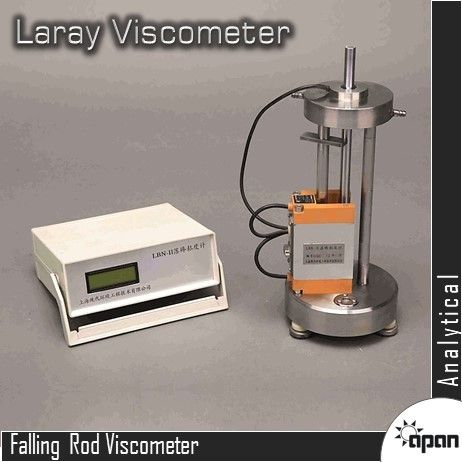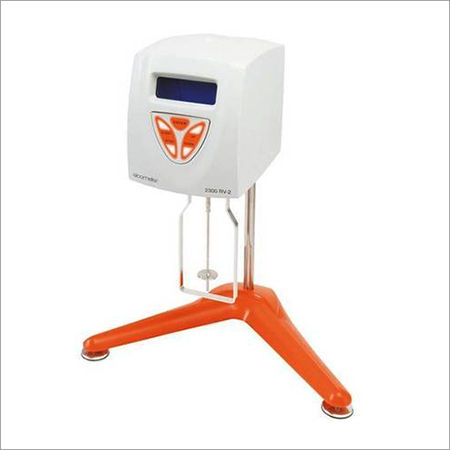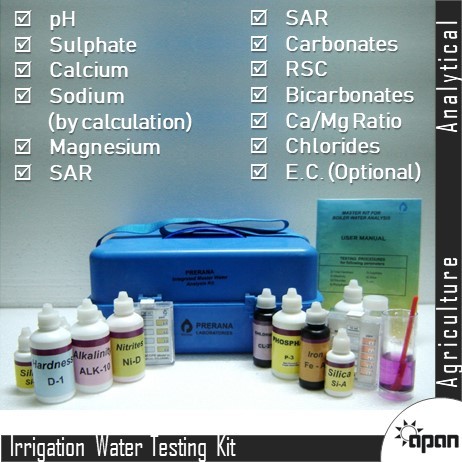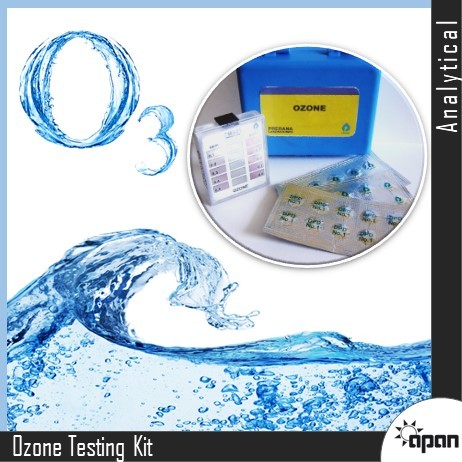Viscosity Standard
Viscosity Standard Specification
- Test Range
- Viscosity standards from 20 cSt to 1000 cSt
- Equipment Type
- Certified Viscosity Standard
- Number of Specimens
- Single sample per test
- Application
- Calibration and verification of viscometers
- Power Supply
- 220V AC, 50/60 Hz
- Resolution
- 0.01 cSt
- Response Time
- Immediate upon use
- Operating Voltage
- N/A (Material based standard)
- Accuracy
- 0.5%
- Features
- Certified traceable standards, suitable for ASTM D445, environmentally stable, sealed bottle
- Humidity
- Relative Humidity 30% - 80%
- Specimen Size
- 20 ml (typical)
- Measuring Range
- 20 cSt to 1000 cSt
- Temperature
- 25C (Standard Testing Temperature)
- Automation Grade
- Manual
- Usage
- For viscosity calibration
- Capacity
- 1 bottle (per test)
- Machine Weight
- Approx. 1.5 kg
- Test Speed
- Variable, typically 60 rpm
- Control Mode
- Manual
Viscosity Standard Trade Information
- Payment Terms
- Cheque, Cash in Advance (CID), Cash Advance (CA)
About Viscosity Standard
- All Viscosity Standarad are certified, accurate and traceable Viscosity Standards.
- Please use the table below to determine which calibration Standard is required for your application . Viscosity Standard are supplied in ½ litre (500 ml) bottles
Viscosity standards in cSt
- 0.47@20°C, 0.45@25°C, 0.41@37.78°C, 0.4@40°C
- 0.74@20°C, 0.70@25°C, 0.61@37.78°C, 0.60@40°C
- 1.3@20°C, 1.2@25°C, 1.0@37.78°C, 0.97@40°C, 0.87@50°C
- 2.9@20°C, 2.6@25°C, 2.1 @37.78'C, 2.0@40°C, 1.7@50°C
- 4.4@20°C, 3.9@25°C, 3.0@37.78°C, 2.9@40°C, 2.4@50°C
- 6.7@20°C, 5.8@25°C, 4.2@37.78°C, 4.0@40°C, 3.2@50°C
- 10@20°C, 8.7@25°C, 6.0@37.78°C, 5.7@40°C, 4.4@50°C
- 14@20°C, 12@25°C, 8.0@37.78°C, 7.5@40°C, 5.8@50°C
- 20@20°C, 16@25°C, 11@37.78°C, 10@40°C, 7.5@50°C
- 30@20°C, 24@25°C, 15@37.78°C, 14@40°C, 10@50°C
- 43@20°C, 34@25°C, 20@37.78°C, 18@40°C, 13@50°C
- 59@20°C, 47@25°C, 27@37.78°C, 25@40°C, 18@50°C
- 88@20°C, 66@25°C, 35@37.78°C, 32@40°C, 21 @50°C
- 110@20°C, 87@25°C, 48@37.78°C, 44@40°C, 30@50°C
- 160@20°C, 120@25°C, 60@37.78°C, 54@40°C, 35@50°C
- 210@20°C, 160@25°C, 83@37.78°C, 75@40°C, 50@50°C
- 320@20°C, 230@25°C, 110@37.78°C, 98@40°C, 61@50°C
- 400@20°C, 300@25°C, 160@37.78°C, 140@40°C, 90@50°C
- 550@20°C, 400@25°C, 200@37.78°C, 180@40°C, 110@50°C
- 790@20°C, 580@25°C, 280@37.78°C, 250@40°C, 160@50°C
- 980@20°C, 710@25°C, 340@37.78°C, 310@40°C, 190@50°C
- 1400@20°C, 1000@25°C, 470@37.78°C, 410@40°C, 250@50°C
- 1800@20°C, 1300@25°C, 590@37.78°C, 520@40°C, 310@50°C
- 2600@20°C, 1800@25° c, 850@37.78°C, 750@40°C, 450@50°C
- 3300@20°C, 2300@25°C, 1100@37.78°C, 940@40°C, 560@50°C
- 4900@20°C, 3500@25°C, 1600@37.78°C, 1400@40°C, 830@50°C
- 8400@20°C, 5300@25°C, 1900@37.78°C, 1600@40°C, 810@50°C
- 7900@20°C, 5800@25°C, 2800@37.78°C, 2500@40°C, 1500@50°C
- 19000@20°C, 12000@25°C, 4000@37.78°C, 3400@40 °C, 1700@50`C
- 28000@20°C, 17000@25°C, 6000@37.78°C, 5100@40°C, 2500@50°C
- 41000@20°C, 25000@25°C, 8000@37.78°C, 6700@40°C, 3200@50°C
- 58000@20°C, 36000@25°C, 10,000@40°C, 4900@50°C
- 77000@20°C, 47000@25°C, 13000@40°C, 6100@50°C
- I0,0000@207, 64000@25°C, 18000@40°C, 8500@50°C
- 79000@25°C, 28000@37.78°C, 23000@40°C, 11000@50°C
Note :
For every Batch manufactured Certificates of Analysis and safety data sheets available
Each standard is certified for...
- Kinematic Viscosity (mm2/s,cSt)
- Dynamic Viscosity (cP)
- Density (g/ml)
Certified for Precision and Consistency
Every batch of our viscosity standard is certified and traceable to both national and international standards, ensuring confidence in calibration results. The product is specifically crafted for accurate verification of viscometers specified under ASTM D445, supporting a broad range of industrial and laboratory applications.
User-Friendly Packaging and Reliable Storage
Supplied in tamper-evident, leak-proof bottles, the viscosity standard maintains integrity from factory to laboratory. The clear or pale yellow fluid is stable for up to two years if stored at 10C to 30C, away from direct sunlight, making it easy to manage and use for routine calibrations and quality checks.
FAQs of Viscosity Standard:
Q: How should the viscosity standard be prepared and used for calibration?
A: Before use, thoroughly shake the bottle and let the standard equilibrate to room temperature, preferably 25C, to achieve accurate readings. Then, dispense 20 ml (typical specimen size) into your testing apparatus and proceed with one sample per test.Q: What is the benefit of traceability in this viscosity standard?
A: Each batch is traceable to recognized national or international standards, ensuring reliability and regulatory compliance during calibration or verification of viscometers, enabling users to meet ASTM D445 and similar criteria.Q: When should the viscosity standard be replaced or discarded?
A: Replace your viscosity standard after 2 years from the manufacturing date, or sooner if contamination or improper storage is suspected, to maintain accuracy and reliability in calibration results.Q: Where should this viscosity standard be stored for best results?
A: For optimal stability, store the bottles between 10C and 30C, away from direct sunlight and in an environment with relative humidity between 30% and 80%.Q: What is the storage packaging and why is it important?
A: The viscosity standard is supplied in tamper-evident, leak-proof bottles, safeguarding against contamination and ensuring the materials consistency and integrity during transport and use.Q: What range does this viscosity standard cover?
A: The product effectively covers a measuring range from 20 cSt to 1000 cSt, making it suitable for a wide spectrum of calibration requirements for viscometers.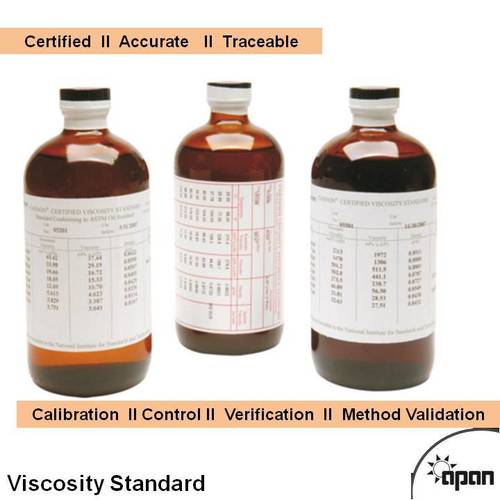

Price:
- 50
- 100
- 200
- 250
- 500
- 1000+
More Products in Analytical Lab and Field Category
Falling Rod Viscometer
Usage : Laboratory viscosity measurement
Measuring Range : 5 20000 cP
Temperature : Room temperature (15C 35C)
Test Speed : Variable (adjustable)
Automation Grade : Semiautomatic / Automatic
Accuracy : 1% of full scale
Rotational Viscometer
Usage : Laboratory, industrial, quality assurance
Measuring Range : 12,000,000 mPas
Temperature : 5C35C (operating range)
Test Speed : 0.1200 rpm
Automation Grade : SemiAutomatic
Accuracy : 1.0% of full scale
Irrigation Water Testing Kit
Usage : Field and onsite irrigation water quality testing
Measuring Range : pH, EC, TDS, Alkalinity, Hardness, Chloride, Nitrate, Sulphate, Calcium, Magnesium
Temperature : 545C Operating range
Test Speed : Varies by parameter; typical 23 min/test
Automation Grade : Manual
Accuracy : 0.1 for pH; 2% FSD for EC
Ozone Testing Kit
Usage : Ozone monitoring in water treatment, research labs, industrial process
Measuring Range : 0.01 ppm to 5.0 ppm
Temperature : Room Temperature (10C 40C)
Test Speed : Standard (As per IS/ISO guidelines)
Automation Grade : Manual
Accuracy : 0.05 ppm

 Send Inquiry
Send Inquiry Send Inquiry
Send Inquiry
